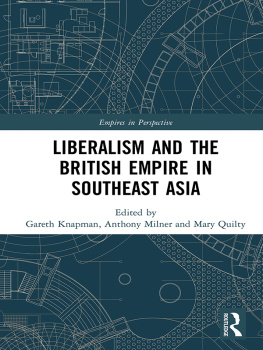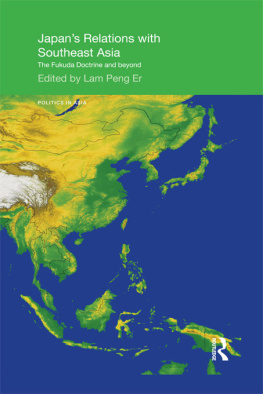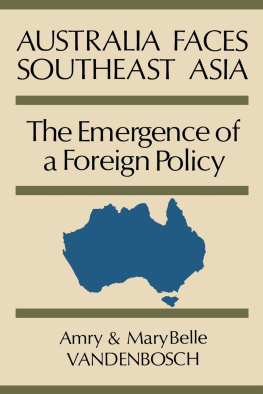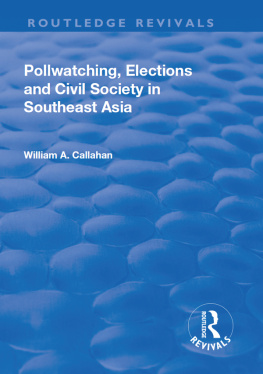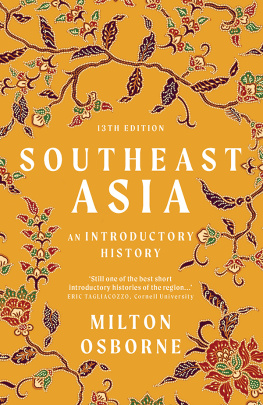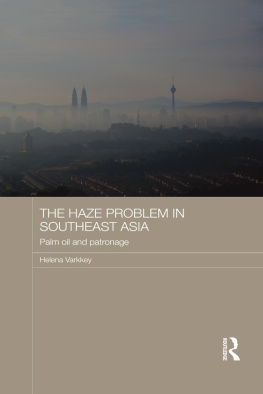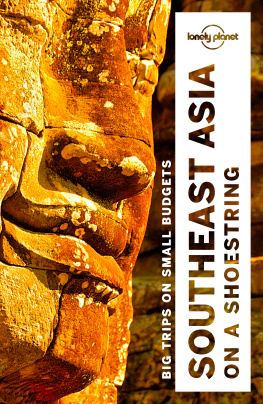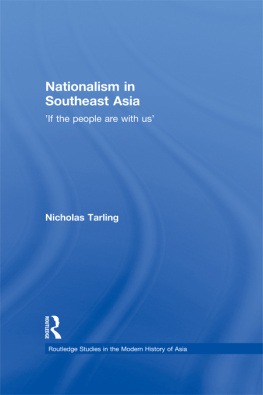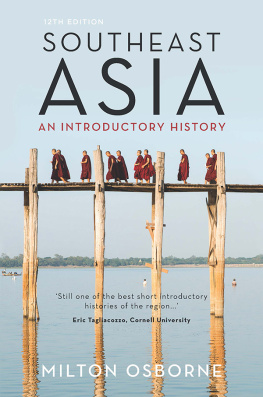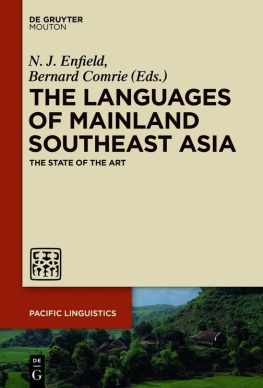Liberalism and the British Empire in Southeast Asia
This collection of essays brings together the leading scholars on British colonial thought in Southeast Asia to consider the question: what was the relationship between liberalism and the British Empire in Southeast Asia? The empire builders in Southeast Asia: Lord Minto, William Farquhar, John Leyden, Thomas Stamford Raffles, and John Crawfurd to name a few were fervent believers in a liberal free trade order in Southeast Asia.
Many recent studies of British imperialism, and European imperialism more generally, have addressed how the anti-imperialist tradition of eighteenth century liberalism was increasingly intertwined with the discourses of empire, freedom, race, and economics in the nineteenth century. This collection extends those studies to look at the impact of liberalism on British colonialism in early nineteenth century Southeast Asia. We see some of the first attempts at developing multicultural democracies within the colonies, experiments in free trade and attempts to use free trade to prevent war and colonisation.
Gareth Knapman is a researcher with the Australian National University specialising in nineteenth century Southeast Asia and Australia.
Anthony Milner is Visiting Professor at the University of Malaya, Professorial Fellow at the University of Melbourne, and Emeritus Professor at the Australian National University.
Mary Quilty is a Visiting Fellow at the Coral Bell School of Asia Pacific Affairs, Australian National University. She has researched and published widely on nineteenth century British thought in Southeast Asia.
Empires in Perspective
Series Editor:
Jayeeta Sharma, University of Toronto
This important series examines a diverse range of imperial histories from the early modern period to the twentieth century. Drawing on works of political, social, economic and cultural history, the history of science and political theory, the series encourages methodological pluralism and does not impose any particular conception of historical scholarship. While focused on particular aspects of empire, works published also seek to address wider questions on the study of imperial history.
Transoceanic Radical: William Duane: National Identity and Empire, 17601835
Nigel Little
Race and British Colonialism in Southeast Asia, 17701870: John Crawfurd and the Politics of Equality
Gareth Knapman
A History of Italian Colonialism, 18601907
Giuseppe Finaldi
Anglo-Korean Relations and the Port Hamilton Affair, 18851887
Stephen A. Royle
British Imperialism and Turkish Nationalism in Cyprus, 19231939: Divide, Define and Rule
Ilia Xypolia
A History of Italian Colonialism
Giuseppe Finaldi
Liberalism and the British Empire in Southeast Asia
Edited by Gareth Knapman, Anthony Milner and Mary Quilty
Outskirts of Empire: Studies in British Power Projection
John Fisher
First published 2019
by Routledge
2 Park Square, Milton Park, Abingdon, Oxon OX14 4RN
and by Routledge
711 Third Avenue, New York, NY 10017
Routledge is an imprint of the Taylor & Francis Group, an informa business
2019 selection and editorial matter, Gareth Knapman, Anthony Milner and Mary Quilty; individual chapters, the contributors
The right of Gareth Knapman, Anthony Milner and Mary Quilty to be identified as the authors of the editorial material, and of the authors for their individual chapters, has been asserted in accordance with sections 77 and 78 of the Copyright, Designs and Patents Act 1988.
All rights reserved. No part of this book may be reprinted or reproduced or utilised in any form or by any electronic, mechanical, or other means, now known or hereafter invented, including photocopying and recording, or in any information storage or retrieval system, without permission in writing from the publishers.
Trademark notice: Product or corporate names may be trademarks or registered trademarks, and are used only for identification and explanation without intent to infringe.
British Library Cataloguing-in-Publication Data
A catalogue record for this book is available from the British Library
Library of Congress Cataloging-in-Publication Data
A catalog record has been requested for this book
ISBN: 978-1-138-08205-2 (hbk)
ISBN: 978-1-315-11268-8 (ebk)
Gareth Knapman and Mary Quilty
This book is about a revolutionary idea liberalism and the response of British colonial officers to that idea. The intellectual complex we call liberalism had an extraordinary effect on a small group of men who wrote about and administered the British colonies in what we now call Southeast Asia in the late eighteenth century and early nineteenth century. The period that is the focus of this book from about 1780 to 1850 is what the mid-twentieth century Austrian economist Ludwig von Mises describes as the brief and all too limited era of the supremacy of liberal ideas which he says, nevertheless sufficed to change the face of the earth.1 This book looks at liberalism when it was new and examines its role in transforming the Southeast Asian portion of the earth through colonialism.
Liberalism is a raft of intersecting ideas, beliefs and attitudes which, when it arose in the late eighteenth century, was initially defined in opposition to the existing order.2 The key tyranny that British liberals complained about was the mercantilist system of restrictions on trade manifest in the monopolistic body, the East India Company. Numerous customs and navigation laws restricted individuals outside the Company who wanted to profit from global trade.
Early liberalism defined itself in opposition to old assumptions of natural inequality.3 Instead as the historian Larry Siedentop argues, liberalisms Christian roots saw the emergence of a new sense of justice, founded on the assumption of moral equality.4 As historian Duncan Bell says liberalism was chiefly a product of the revolutionary ferment of the late eighteenth century that saw existing patterns of thought confronted with new egalitarian and democratic visions pulsating through the Euro-Atlantic world.5 Jennifer Pitts similarly describes liberalism arising to confront the inequality and unfairness of the old order. She begins her 2005 book, A Turn to Empire with the words:
In the closing years of the eighteenth century, a critical challenge to European imperial conquest rule was launched by many of the most innovative thinkers of the day They drew on a strikingly wide range of ideas to criticise European conquests and rule over peoples across the globe: among others, the rights of humanity and the injustice of foreign despotism, the economic wisdom of free trade, foolishness of conquest and the impossibility of sustaining freedom at home while exercising tyranny abroad.6
Bell and Pitts agree that liberalism, at least initially, was democratic and egalitarian in its ideals; that it arose, at least in part, in opposition to the undemocratic and inegalitarian act of colonisation the political annexation of land and people who did not volunteer for it. But if liberalism arose in opposition, at least in part, to colonialism and the monopolistic power of the East India Company, how then did the men who implemented that colonialism understand liberalism? This book is an attempt to answer that question. Before, however, we do that we will briefly define the term.

